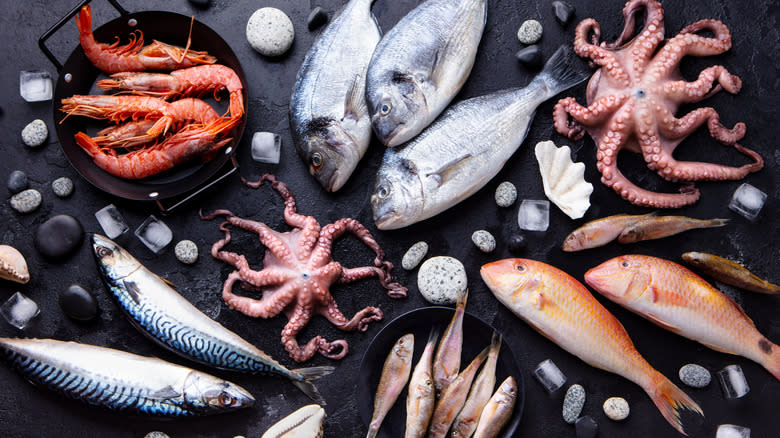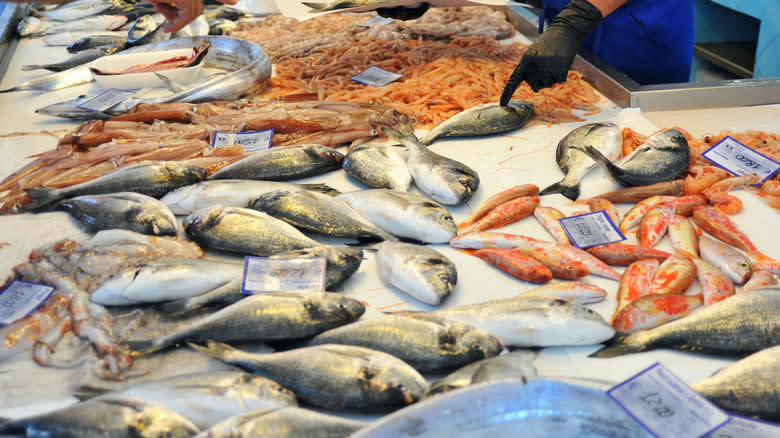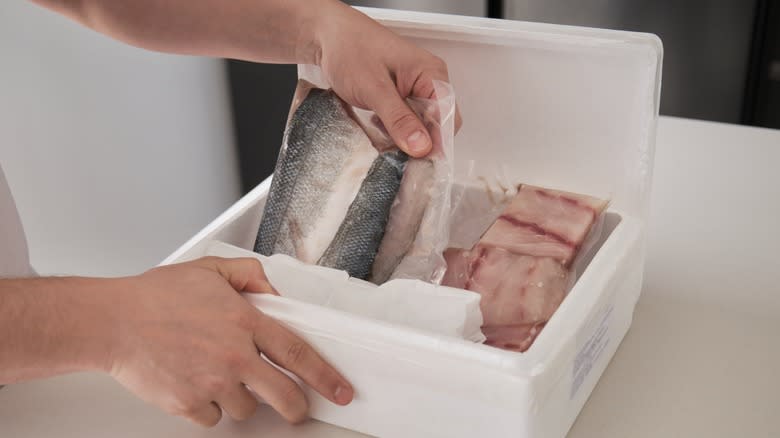What To Consider Before Buying Fish Online

It's no secret that the convenience of ordering seafood online has led to a recent surge in customers. The allure of having your desired fish delivered to your doorstep is undeniable. However, before you dive into this convenient oceanic world, it's crucial to consider a few key factors. It doesn't matter whether you want a couple of salmon fillets for dinner or if you are looking for a supplier to provide huge volumes of fish for a restaurant or event, these guidelines will help you find an excellent online fish market.
Some web-based seafood sellers insist that customers purchase a large amount of fish. This approach is because it will be more expensive for these businesses to package and ship individual fillets. However, a reputable company should allow you to buy small quantities instead of asking you to place a minimum order. After all, it's wasteful (and expensive) to buy more fresh fish than you can consume without things spoiling (or overfilling your freezer). Next on your list? Consider your personal network. Talk to your friends and family or favorite restaurant in your city to see if they can share the order with you -- there might be a responsible and reliable fishmonger already available in your community.
Read more: 15 Different Ways To Cook Fish
From Sea To Screen

Next, pay close attention to how and when the fish will be delivered, as the products are highly perishable. Online seafood stores should ship out products quickly and use suitable materials, like ice packs, to keep seafood and other materials cold during transit. This detail will help to retain freshness and preclude the growth of bacteria or fishy smells. The company should be able to ship the products overnight or within two days. On your side, do not order fish if you need to be away from your kitchen for a few hours, as someone will need to be on hand to immediately unpack and refrigerate or freeze the seafood to keep the quality high and avoid any deterioration. Overall, remember that delivery regions can differ by online seafood providers.
From an ethical standpoint, it is also essential to look at the source of fish and how an online fish market acquires its products. Consumers should have easy access to this information and make responsible choices. For instance, a reputable online fish market might source its seafood from MSC-certified fisheries, which ensures sustainable fishing practices. Potential customers can research what sources these companies use for their seafood and whether they have ethical standards for overfishing, use antibiotics and other drugs, and how they treat fish. Like the trend towards sustainability in the tuna industry, selecting vendors with high-sourcing activities also helps protect the fisheries and aquacultures.
Catch Of The (Digital) Day

Lastly, inquire if the online fish market still has a return policy for a damaged or spoiled order. There is always an element of uncertainty when buying perishables, especially with proteins of a delicate nature like seafood. Having return and refund options makes ordering fish online easier because you can always apply for a refund or a replacement if you are unsatisfied with the requested item's quality. It's important to note that the return policy should be clearly stated on the website, including the timeframe for returns and the process for requesting a refund or replacement.
While this might sound like a lot, just remember that organized institutions should be able to explain and communicate the conditions under which they source, transport, and deliver seafood to their customers. If these critical factors are accounted for before ordering fish or seafood for home delivery, you can rest assured that you are getting some fresh and high-quality proteins. This also allows you to make ocean-friendly purchases by selecting retailers that care about the environment and follow sustainable practices.
Read the original article on Tasting Table

